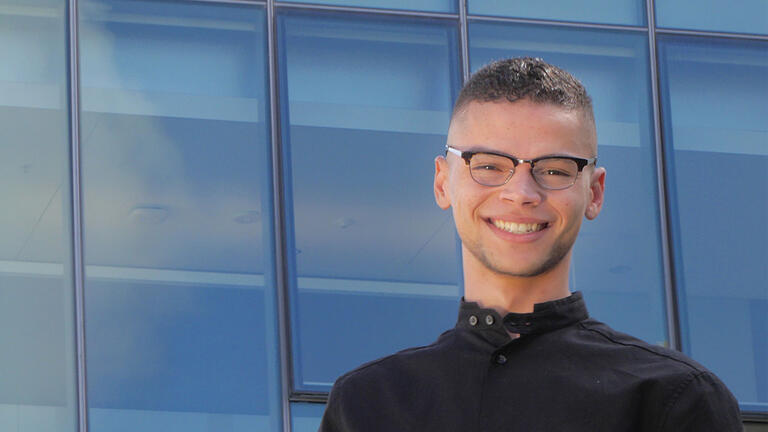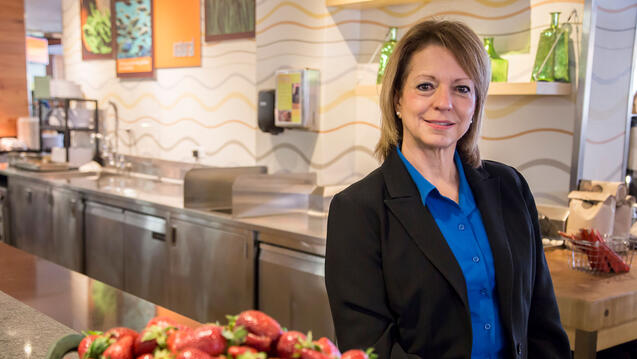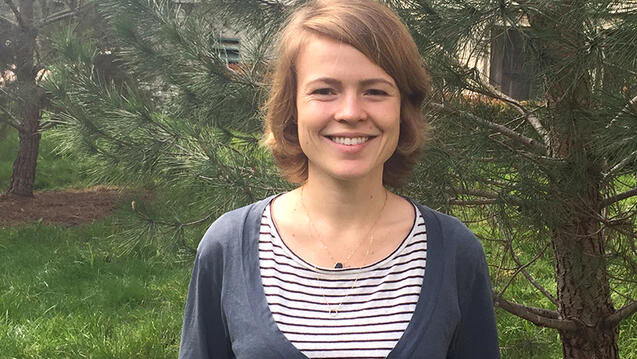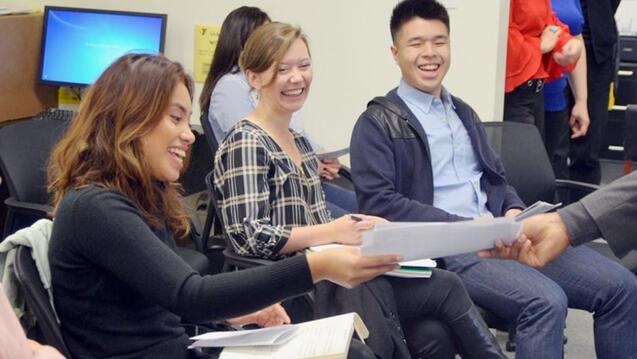
Shifting Power Dynamics
Addressing the world’s inequalities has always been important for Ben Greenlea ‘17. He sees his current role as a Credit Analyst for Pacific Community Ventures (PCV) as helping to foster positive social change.
PCV is a nonprofit, community development financial institution (CDFI), that operates as a small business lender and technical assistance provider. Their goal is to create an equitable economy that works for all. PCV seeks entrepreneurs who, historically, have not had fair access to capital or advising (e.g. ethnic minorities, women, LGBTQ members, and veterans) and aims to help them gain access to economic opportunities. Within his role at PCV, Ben keeps in mind his commitment to social justice, a passion he has had since he was young. He continued to cultivate it during his time as an Economics major at USF.
What is your favorite part of working at Pacific Community Ventures?
I love community outreach because it affords me the opportunity to build my personal network while learning about new problems/development strategies. It also allows me to sit down with entrepreneurs, learn their struggles, and advocate for the necessary changes in the local credit market.
How did the economics program prepare you for your career?
I was glad that many of my professors advocated for working and studying in groups. This taught me to communicate complex ideas, while allowing me the opportunity to mitigate gaps in my own learning. Now, I negotiate massive industry changes with my counterparts at other organizations, and the ability to work in groups has proven invaluable.
Another skill the program afforded me is two-pronged: data competency and data analysis. Competency allows me to prove the data-driven projects presented to me, while analysis allows me to draw my own insights from the data, both of which I utilize in my work. I was also prompted by Professor Jesse Anttila-Hughes to take some graduate level courses, which bolstered my data competency and analytical skills, and taught me to conduct my own data driven experiments.
How did the economics faculty help you grow in the program?
Professor Antilla-Hughes asked me what I wanted out of my degree and spurred questions that needed to be asked. By the end of the conversation, I was reminded of my desire to create tangible good through my studies. He also offered me a Research Assistance position to help build my resume and encouraged me to expand my learning beyond the classroom. This RA position led me to pursue and secure a lending internship at PCV, which ultimately led to my current position. I couldn’t be more grateful to Professor Anttila-Hughes for taking the time and influencing how I view my life, future, and career path.
How did the program incorporate a social justice framework into economics?
Many of my classes — such as Grad Econometrics taught by Professor Antilla-Hughes and Development Microeconomics taught by Professor Bruce Wydick — focused less on growth and maximizing profits and more on sustainability and equitable distribution. As a result, I now approach every problem with a consideration for all affected parties, with the goal of creating the most good for the most people. This speaks to addressing historical biases (racism, sexism, xenophobia, transphobia, homophobia), for if we seek to create a sustainable and equitable economy, we must first level the playing field.
How do you continue to carry on USFs mission?
The work I do is all about shifting existing power dynamics to create a greater sense of equity and opportunity. I carry forward USF’s mission by using my voice and qualification to advocate for underserved small business owners, and ultimately underserved people and families. I’ve had to fiercely stand against programmatic changes and arising policies that reinforce the politics of the One Percent. I continue to advocate for the change the world needs, while remaining open to thoughts and teachings of those around me.


